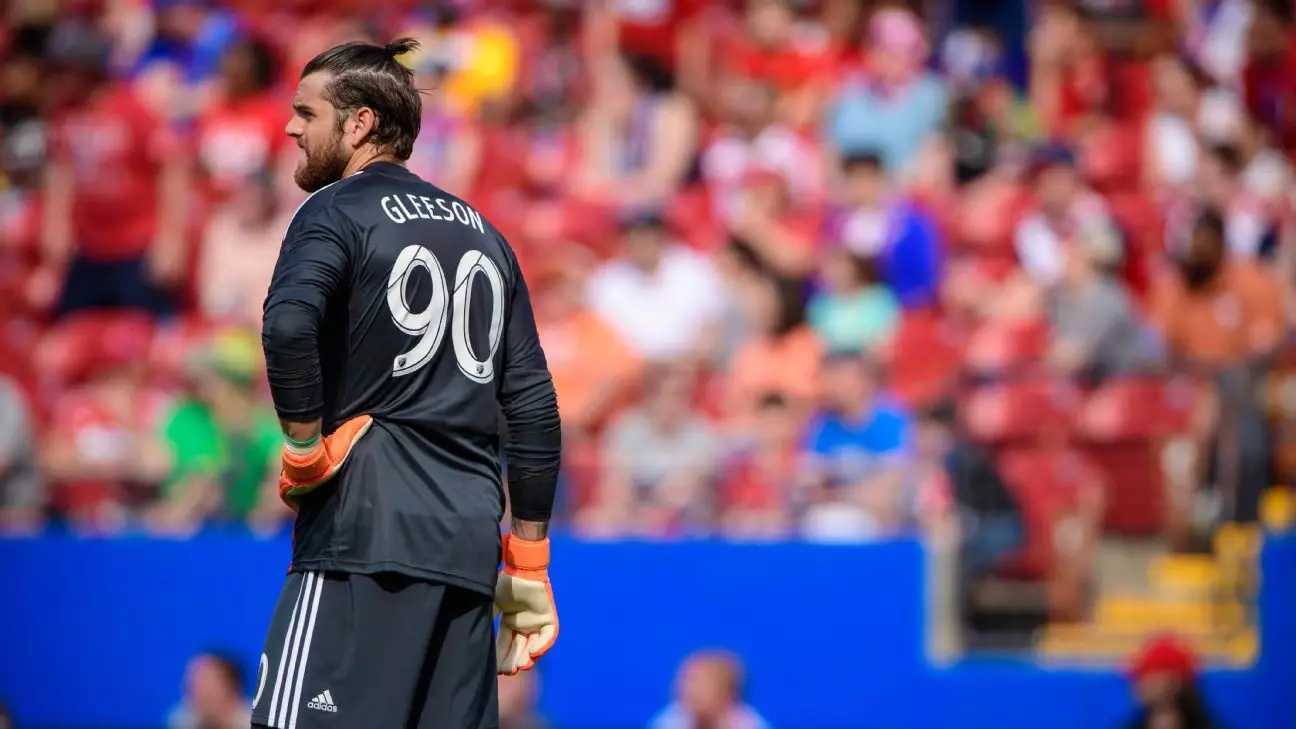Jake Gleeson’s journey from a professional athlete to a man facing severe physical challenges is something that resonates deeply within the sports community, especially those who have suffered from similar circumstances. The former Portland Timbers goalkeeper, once celebrated for his agility and skill on the pitch, became embroiled in a medical malpractice lawsuit that took years to unfold. The jury’s subsequent ruling in his favor, amidst significant emotional testimony, illuminates both the journey of a fighter and the culpability of the medical system. Gleeson was awarded over $20 million, a staggering sum that speaks to the profound impact of medical negligence on an individual’s life.
This case is not just about financial compensation. It is a depiction of enduring hardship and a quest for accountability. Gleeson’s ordeal began with routine surgery in 2018 aimed at fixing stress fractures in his legs. However, the narrative twisted into a nightmare as he suffered from infections, resulting from alleged mistakes including improper sterilization of surgical plates. Gleeson’s life evolved from training sessions and team camaraderie to a world plagued by physical and emotional pain. It is a shocking reminder that even in established institutions, failure to adhere to medical standards can have dire consequences.
The Anatomy of Negligence
The details unearthed during the trial painted a concerning picture of negligence. With the jury affirmatively ruling against Dr. Richard H. Edelson, it becomes evident that the standard of care expected by patients, particularly professional athletes who invest their lives in their physical health, was not met. The use of Immediate-Use Steam Sterilization (IUSS) was defended by the medical team, suggesting that the processes in place were adequate. However, this point raises critical questions about the standards and protocols applied within medical facilities — especially those treating elite athletes whose careers depend heavily on their physical well-being.
Gleeson’s case pushes us to interrogate the processes that surround surgical procedures. How can failures in basic protocols lead to irreversible damage? It is a fundamental question that extends beyond Gleeson’s experience. The medical community must grapple with the implications of this ruling — a call for heightened scrutiny and improvements in surgical standards.
From Athlete to Advocate
Post-verdict, Gleeson’s reflections during a Zoom call showcased his metamorphosis from athlete to advocate. Engaging in a dialogue about the importance of medical safety and patient rights, his message reverberated with authenticity. “You expect them to follow these guidelines and these policies,” he mentioned, emphasizing that the promise of safety transcends occupational titles. Whether one is an NFL player or a desk worker, the expectation of quality care remains universal.
Gleeson’s transformation signifies a newfound purpose. Rather than allowing his suffering to define him, he aspires to use his experience to ensure that others may not have to traverse the murky waters of medical negligence. This serves as an important life lesson, not just for athletes, but for anyone undergoing medical procedures. The emphasis on informed consent and the obligation of physicians to uphold the highest standards of care is crucial in protecting patients.
The Emotional Toll of Medical Malpractice
Beyond the legal victories and financial settlements, perhaps the most significant aspect of Gleeson’s story lies in the emotional repercussions of medical malpractice. He described not only the pain of physical surgeries but also the deep-seated mental trauma that accompanied his journey. Losing the capability to pursue a beloved sport while grappling with chronic pain has inevitably reshaped his identity. This emotional landscape is often overlooked in discussions surrounding medical negligence but deserves equal attention and compassion.
The support Gleeson received from former teammates, like Nat Borchers and Darlington Nagbe, illustrates the strength of community. They stood by him, offering testimony that underscored the psychological and social ramifications of his medical ordeal. This communal support is vital for anyone recovering from injury or illness; it highlights that healing extends far beyond physical recovery.
Looking Ahead: A Cautionary Tale
As we reflect on Gleeson’s struggle and triumph, there are implications that resonate beyond this specific case. The conversations emerging from this lawsuit highlight the pressing need for systemic reforms in healthcare — particularly in surgical environments. For athletes, the stakes are high; a moment of negligence can alter a career trajectory irreparably. For the general public, the stakes are equally critical — health is an invaluable resource that demands vigilant protection.
While the journey for Jake Gleeson has been fraught with challenges, his case stands as both a beacon of hope and a cautionary tale. It calls for diligence, transparency, and accountability within the healthcare system, making it clearer than ever that the fight for justice — personal and societal — is ongoing.

